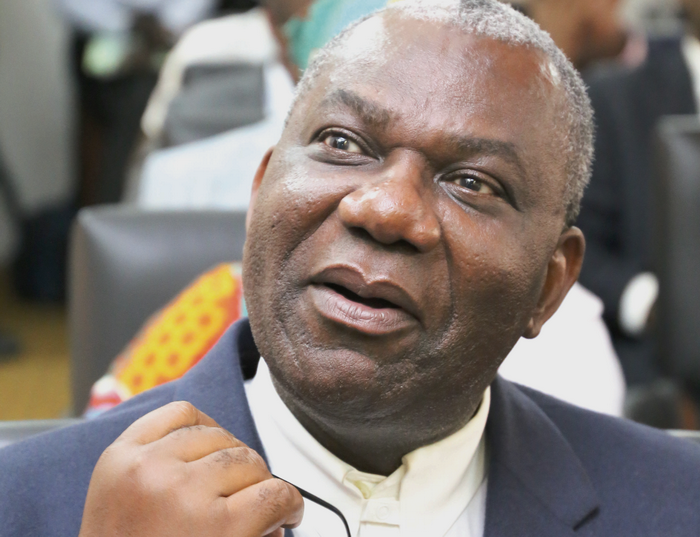
Founders or Founder’s Day: which way?
Article Index
Thursday, September 21, the birth date of the late President Kwame Nkrumah, has been designated as Founder’s Day in Ghana and is being celebrated as such.
The fact that a lively debate continues to rage on this subject, I guess, is an indication of a national restlessness of its propriety.
I suspect it is going to take the calming effect of time or the continuous chatter to attenuate the “noise” on this matter and bring us to some national equilibrium of acceptance or rejection. But while the matter is live and continues to be debated, I hope I will be permitted to put in my two pesewas worth of a contribution, however mundane or as some may think, deranged.
Argument
In so doing, permit me to juxtapose two statements to represent the canvass upon which I wish to paint my argument. The first is, “what is a great man who has made his mark upon history?” Every time, if we should think far enough, he is a man who had looked through the confusion of the moment and has seen the moral issues involved; he is a man who has refused to have his sense of justice distorted; he has listened to his conscience until conscience becomes a clarion call to like-minded men, so that they gather about him and together, with mutual purpose and mutual aid, make a new period in history.
My second is actually a re-statement of what Nikita Khruschev said in his speech to the Central Committee of the Communist Party of the then Soviet Union in Moscow on February 25, 1956. The title of that speech was "We must abolish the cult of the individual".
This is what he had to say, "After Stalin's death the Central Committee of the party began to implement a policy of explaining concisely and consistently that it is impermissible and foreign to the spirit of Marxism-Leninism to elevate one person, to transform him into a superhuman possessing supernatural characteristics akin to those of a god.
Such a man supposedly knows everything, sees everything, thinks for everyone, can do anything, is infallible in his behaviour. Such a belief about a man, and specifically about Stalin, was cultivated among us for many years".
The continuing debate
The continuing debate compels us to ponder upon the question whether Ghana has a Founder or Founders? To answer this question properly and fully, requires an accurate and factual statement of our historical evolution as a nation to our present form, and allow the facts only to speak for themselves. I will, therefore, not seek to pass any value judgement on any of the historical figures who were primarily involved in Ghana's struggle for independence.
That necessary discussion will have to wait for another day.
What is a Founder’s or Founders’ day and why do we need to celebrate it as such?
In essence, it is the setting aside of a particular day for the recognition and honouring of a person or persons who in very significant and diverse ways contributed to the founding of, for example, a nation, a state, a movement, etc. In our circumstance, we wish to set aside such a day when we will honour the achievements of a single founder or the collective toils of many. The question therefore is, which of the two should we be doing? Do we have a Founder or Founders?
Loaded question
The answer to this rather loaded question, however belatedly, lies in setting out the milestone, factually, of our march towards independence and nationhood. As David Kimble notes in his book, A Political History of Ghana - The Rise of Gold Coast Nationalism: 1850 – 1928, the quest for self-determination has been manifested among the people of the Gold Coast right from the beginning of colonial rule.
He notes, poignantly, that it was this sense of nationalism which led to the demand for representation.
This demand for representation and self-determination was met half-way by the establishment of the Legislative Council from 1850 to 1928, and set the framework for the fuller agitation for independence in a latter period.
It involved the full and tireless dedication of such men as; F.C. Grant, John Sarbah, James Sagoe, J.W Sey, W.E. Pietersen, T.F.E Jones, A.Q. Yarquah, Timothy Laign, J.F. Amissah, J.P. Brown, King Tackie of Ussher Town, King Dowuona of Christiansborg, Chief Ababio of James Town, Charles Bannerman, William Addo, Phillip Randolf, F.H. Fearson, E. Bannerman, T. Hutton Mills, J. Bright Davies and E. Quartey Papafio.
When a partial victory was won with the establishment of the Legislative Council, the elected members were as follows: James Bannerman of Accra, George Blankson of Anomabo, Robert Hutchison of Cape Coast, F.C. Grant of Cape Coast, S.C. Brew of Anomabo, G.F. Cleland of Accra, John Sarbah of Cape Coast, J.H. Cheetham of Accra, J. Vanderpuiye of Accra, T. Hutton Mills of Accra, John Mensah Sarbah of Cape Coast, J.P. Brown of Cape Coast, Nene Azu Mate Korle of Manya Krobo, Nana Amonoo V of Anomabo, Togbui Sri II of Anlo, Nana Ofori-Atta of Akim Abuakwa, E.J.P Brown of Cape Coast, J.E. Casley Hayford of Sekondi, Dr B.W. Quartey-Papafio of Accra, C.J. Bannerman of Accra, Nana Essandoh II of Nkusukum, J. Glover-Addo of Accra, H. Van Hien of Elmina and E.C. Quist of Accra.
